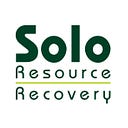Green Business Practices: How Commercial Recycling Bins Can Save You Money
In an era of heightened environmental awareness and desire for sustainability, businesses are increasingly adopting green practices to simultaneously reduce their environmental footprint and save money. One of the most effective strategies for achieving both of these goals is embracing recycling programs, which can include the use of commercial recycling bins. In this article we’ll explore how adopting green business practices through business recycling, focusing on materials like cardboard and paper, and the use of recycling bins can have a positive impact on your business’s bottom line.
The Business Case for Recycling
Sustainability and profitability are no longer mutually exclusive in the business world. Forward-thinking companies recognize that adopting environmentally responsible practices can lead to substantial cost savings and enhance their corporate image. As such, embracing green business practices is a strategic move that can yield long-term benefits.
Reducing Waste
The first step in creating a sustainable business model is the reduction of waste. Commercial enterprises generate significant quantities of waste, much of which can be recycled or repurposed. By adopting recycling, a business can minimize the amount of waste that ends up in landfills and incinerators. This not only reduces your environmental impact but also reduces waste disposal costs.
Commercial Cardboard Recycling
When considering recycling, one of the primary materials that businesses can focus on is the cardboard that is associated with their commercial activities. Cardboard is a common waste product in business operations, and its recycling can lead to substantial savings. By using dedicated collection bins specifically designed for cardboard, you can segregate and store cardboard waste efficiently, and as cardboard is highly recyclable with a strong market demand, it can be a valuable resource when properly managed.
Recycling commercial cardboard offers the following benefits:
Cost Reduction: By recycling cardboard, you can significantly reduce your waste disposal costs. Cardboard is bulky and occupies a lot of space in collection containers, which means frequent waste removals. Recycling decreases the frequency of pickups, thereby reducing collection and disposal expenses.
Revenue Generation: Depending on market conditions, recycled cardboard can be a source of revenue. Some recycling companies purchase used cardboard, potentially creating an additional income stream for your business.
Environmental Benefits: Recycling cardboard conserves natural resources and reduces the energy required for new cardboard production. This lowers your carbon footprint and contributes to environmental sustainability.
The Role of Commercial Recycling Bins
Commercial recycling bins play a crucial role in promoting sustainable waste management in businesses that produce a lot of packaging. They facilitate the collection and segregation of recyclable materials, and these bins come in a variety of sizes, styles, and materials to suit your specific needs, and they provide the following benefits:
Efficient Waste Sorting: Recycling bins are designed to help your employees and customers sort waste materials effectively. By providing dedicated bins for different types of waste, such as cardboard, paper, plastics, glass, and metals, you can ensure that recyclables are separated from general waste.
Promoting A Recycling Culture: Placing easily accessible and well-labeled recycling bins in strategic locations around your premises encourages everyone to participate in your recycling program. Employees, customers, and visitors are more likely to recycle when it’s made convenient and visible.
Improved Aesthetics: Dedicated recycling bins can enhance the aesthetics of your business space. They are available in various colors and styles, allowing you to choose bins that align with your branding or interior design.
Cost Savings Beyond Recycling
In addition to the direct savings associated with recycling, embracing other green business practices can lead to cost reductions:
Energy Efficiency: Implementing energy-saving measures, such as the use of LED lighting and energy-efficient appliances, can lead to substantial reductions in your utility bills.
Water Conservation: Installing water-saving fixtures and implementing water-efficient practices can reduce your water consumption, leading to lower water bills.
Tax Incentives: Some governments offer tax incentives and rebates for businesses that adopt sustainable practices, making it more cost-effective to invest in green initiatives and technologies.
Reputation And Marketing: Green business practices can enhance your brand’s reputation, attract environmentally conscious customers, improve customer loyalty, and boost your standing in the community.
Reduced Liability: By adopting responsible environmental practices, you can reduce the risk of environmental fines, lawsuits, or damage to your business’s reputation.
How Recycling and Dedicated Commercial Recycling Bins Can Help Your Business
Green business practices, including recycling and the proper use of recycling bins, are not just about being environmentally responsible, they are also about saving money, improving your business’s reputation, and securing a sustainable future. By reducing waste, recycling materials like cardboard, and implementing energy and water-saving measures, businesses can experience a significant positive impact on their bottom line. Embracing sustainability is not just about being green; it is also about making your business more profitable and resilient in the future.
Solo are specialist in business recycling and all things waste management. Give us a call today at 1300 46 76 56 and find out how we can help you.
